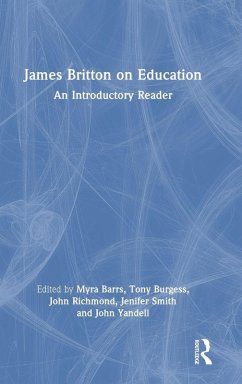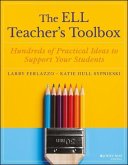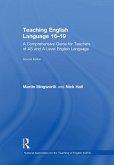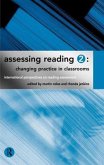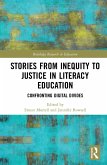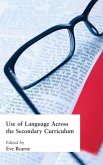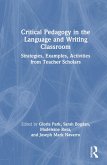James Britton on Education
An Introductory Reader
Herausgeber: Barrs, Myra; Yandell, John; Smith, Jenifer; Richmond, John; Burgess, Tony
James Britton on Education
An Introductory Reader
Herausgeber: Barrs, Myra; Yandell, John; Smith, Jenifer; Richmond, John; Burgess, Tony
- Gebundenes Buch
- Merkliste
- Auf die Merkliste
- Bewerten Bewerten
- Teilen
- Produkt teilen
- Produkterinnerung
- Produkterinnerung
James Britton's work addresses central educational questions that are as relevant today as they were half a century ago. This carefully curated collection of Britton's key writings renders his work accessible to today's students, educators and researchers.
Andere Kunden interessierten sich auch für
![The Ell Teacher's Toolbox The Ell Teacher's Toolbox]() Larry FerlazzoThe Ell Teacher's Toolbox30,99 €
Larry FerlazzoThe Ell Teacher's Toolbox30,99 €![Teaching English Language 16-19 Teaching English Language 16-19]() Martin IllingworthTeaching English Language 16-19170,99 €
Martin IllingworthTeaching English Language 16-19170,99 €![Assessing Reading 2: Changing Practice in Classrooms Assessing Reading 2: Changing Practice in Classrooms]() Martin ColesAssessing Reading 2: Changing Practice in Classrooms180,99 €
Martin ColesAssessing Reading 2: Changing Practice in Classrooms180,99 €![Stories from Inequity to Justice in Literacy Education Stories from Inequity to Justice in Literacy Education]() Stories from Inequity to Justice in Literacy Education176,99 €
Stories from Inequity to Justice in Literacy Education176,99 €![Multimodal Funds of Knowledge in Literacy Multimodal Funds of Knowledge in Literacy]() Sally BrownMultimodal Funds of Knowledge in Literacy180,99 €
Sally BrownMultimodal Funds of Knowledge in Literacy180,99 €![Use of Language Across the Secondary Curriculum Use of Language Across the Secondary Curriculum]() Use of Language Across the Secondary Curriculum239,99 €
Use of Language Across the Secondary Curriculum239,99 €![Critical Pedagogy in the Language and Writing Classroom Critical Pedagogy in the Language and Writing Classroom]() Critical Pedagogy in the Language and Writing Classroom168,99 €
Critical Pedagogy in the Language and Writing Classroom168,99 €-
-
-
James Britton's work addresses central educational questions that are as relevant today as they were half a century ago. This carefully curated collection of Britton's key writings renders his work accessible to today's students, educators and researchers.
Hinweis: Dieser Artikel kann nur an eine deutsche Lieferadresse ausgeliefert werden.
Hinweis: Dieser Artikel kann nur an eine deutsche Lieferadresse ausgeliefert werden.
Produktdetails
- Produktdetails
- Verlag: Taylor & Francis
- Seitenzahl: 216
- Erscheinungstermin: 27. Dezember 2024
- Englisch
- Abmessung: 234mm x 156mm x 14mm
- Gewicht: 499g
- ISBN-13: 9781032874869
- ISBN-10: 1032874864
- Artikelnr.: 71682083
- Herstellerkennzeichnung
- Libri GmbH
- Europaallee 1
- 36244 Bad Hersfeld
- gpsr@libri.de
- Verlag: Taylor & Francis
- Seitenzahl: 216
- Erscheinungstermin: 27. Dezember 2024
- Englisch
- Abmessung: 234mm x 156mm x 14mm
- Gewicht: 499g
- ISBN-13: 9781032874869
- ISBN-10: 1032874864
- Artikelnr.: 71682083
- Herstellerkennzeichnung
- Libri GmbH
- Europaallee 1
- 36244 Bad Hersfeld
- gpsr@libri.de
Myra Barrs was Honorary Senior Research Associate at the UCL Institute of Education, UK, and former director of the Centre for Literacy in Primary Education. Tony Burgess has been a secondary-school teacher, before working in research and teacher education at the UCL Institute of Education, UK. John Richmond has been an English teacher, an adviser of teachers and an educational broadcaster. Jenifer Smith has been an English and drama teacher in both primary and secondary schools, before becoming a teacher educator at the University of East Anglia, UK. John Yandell taught in secondary schools for 20 years before moving to the UCL Institute of Education, UK, where he is Professor of English in Education.
Introduction - James Britton's life and work
Section 1 The language of young children
1.1 The development of language: 'Learning to speak'
1.2 Early literacy: 'Young fluent writers'
1.3 Meaning-making, interaction and play: 'The anatomy of human experience
- the role of inner speech'
Section 2 Language and learning at school
2.1 The value of talk: 'Now that you go to school'
2.2 'Language and learning'
2.3 In defence of 'progressive' practice: 'Language in the British primary
school'
2.4 The disorderliness of learning: from 'Talking to learn'
Section 3 Writing
3.1 Expressive writing: 'Writing to learn and learning to write'
3.2 Functions and audiences in the development of writing: from The
development of writing abilities (11-18)
3.3 What writers have in common: 'Shaping at the point of utterance'
Section 4 Teachers and research
4.1 'A note on teaching, research and "development"'
4.2. 'A quiet form of research'
4.3 The community of the classroom: 'Vygotsky's contribution to pedagogical
theory'
Section 5 A certain idea of English
5.1 The scope of English: 'What is English?'
5.2 'Literature in its place'
5.3 Autobiographical coda: 'English teaching: retrospect and prospect'
5.4 Today's student teachers reading and discussing Britton
Section 1 The language of young children
1.1 The development of language: 'Learning to speak'
1.2 Early literacy: 'Young fluent writers'
1.3 Meaning-making, interaction and play: 'The anatomy of human experience
- the role of inner speech'
Section 2 Language and learning at school
2.1 The value of talk: 'Now that you go to school'
2.2 'Language and learning'
2.3 In defence of 'progressive' practice: 'Language in the British primary
school'
2.4 The disorderliness of learning: from 'Talking to learn'
Section 3 Writing
3.1 Expressive writing: 'Writing to learn and learning to write'
3.2 Functions and audiences in the development of writing: from The
development of writing abilities (11-18)
3.3 What writers have in common: 'Shaping at the point of utterance'
Section 4 Teachers and research
4.1 'A note on teaching, research and "development"'
4.2. 'A quiet form of research'
4.3 The community of the classroom: 'Vygotsky's contribution to pedagogical
theory'
Section 5 A certain idea of English
5.1 The scope of English: 'What is English?'
5.2 'Literature in its place'
5.3 Autobiographical coda: 'English teaching: retrospect and prospect'
5.4 Today's student teachers reading and discussing Britton
Introduction - James Britton's life and work
Section 1 The language of young children
1.1 The development of language: 'Learning to speak'
1.2 Early literacy: 'Young fluent writers'
1.3 Meaning-making, interaction and play: 'The anatomy of human experience
- the role of inner speech'
Section 2 Language and learning at school
2.1 The value of talk: 'Now that you go to school'
2.2 'Language and learning'
2.3 In defence of 'progressive' practice: 'Language in the British primary
school'
2.4 The disorderliness of learning: from 'Talking to learn'
Section 3 Writing
3.1 Expressive writing: 'Writing to learn and learning to write'
3.2 Functions and audiences in the development of writing: from The
development of writing abilities (11-18)
3.3 What writers have in common: 'Shaping at the point of utterance'
Section 4 Teachers and research
4.1 'A note on teaching, research and "development"'
4.2. 'A quiet form of research'
4.3 The community of the classroom: 'Vygotsky's contribution to pedagogical
theory'
Section 5 A certain idea of English
5.1 The scope of English: 'What is English?'
5.2 'Literature in its place'
5.3 Autobiographical coda: 'English teaching: retrospect and prospect'
5.4 Today's student teachers reading and discussing Britton
Section 1 The language of young children
1.1 The development of language: 'Learning to speak'
1.2 Early literacy: 'Young fluent writers'
1.3 Meaning-making, interaction and play: 'The anatomy of human experience
- the role of inner speech'
Section 2 Language and learning at school
2.1 The value of talk: 'Now that you go to school'
2.2 'Language and learning'
2.3 In defence of 'progressive' practice: 'Language in the British primary
school'
2.4 The disorderliness of learning: from 'Talking to learn'
Section 3 Writing
3.1 Expressive writing: 'Writing to learn and learning to write'
3.2 Functions and audiences in the development of writing: from The
development of writing abilities (11-18)
3.3 What writers have in common: 'Shaping at the point of utterance'
Section 4 Teachers and research
4.1 'A note on teaching, research and "development"'
4.2. 'A quiet form of research'
4.3 The community of the classroom: 'Vygotsky's contribution to pedagogical
theory'
Section 5 A certain idea of English
5.1 The scope of English: 'What is English?'
5.2 'Literature in its place'
5.3 Autobiographical coda: 'English teaching: retrospect and prospect'
5.4 Today's student teachers reading and discussing Britton

